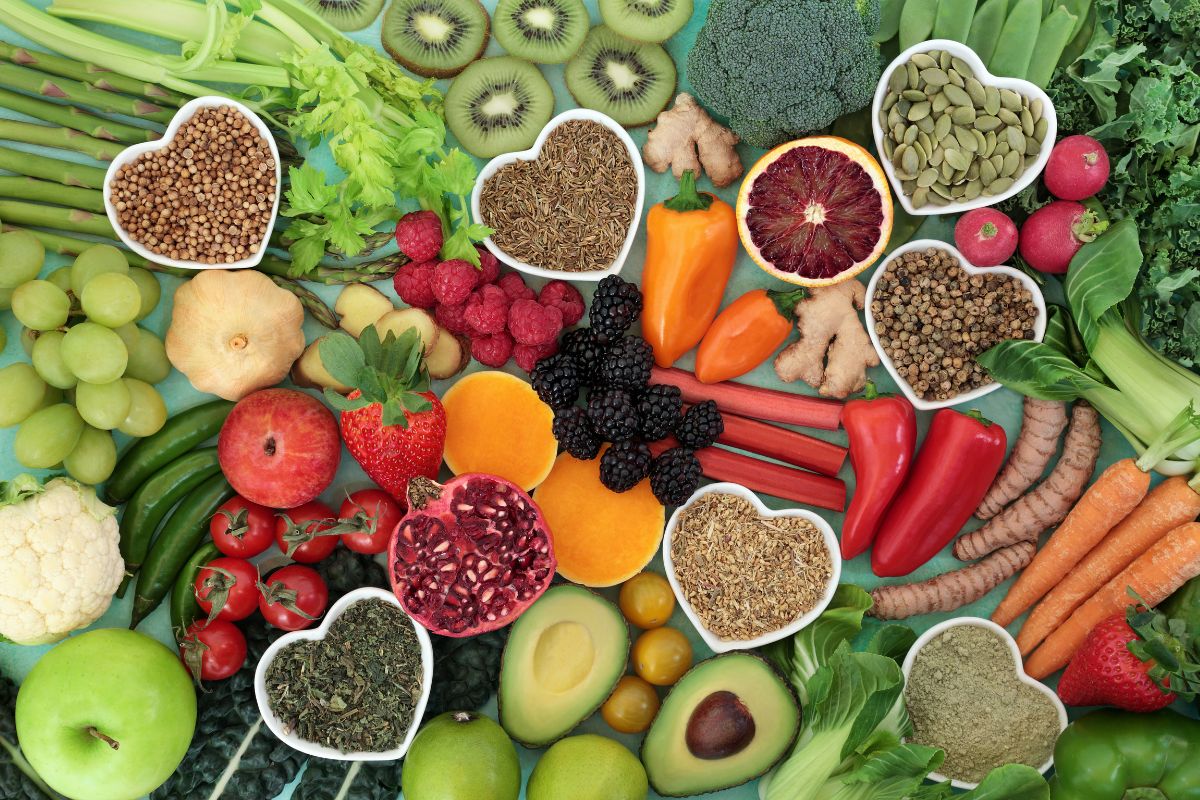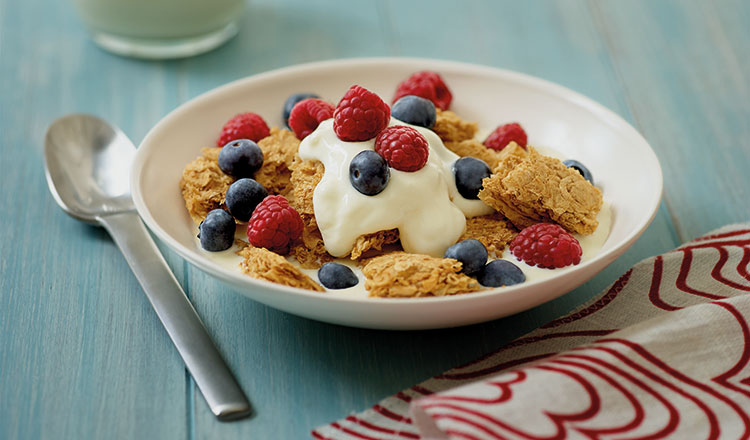Having a heart healthy diet means enjoying a balanced diet including a variety of different food groups like plenty of vegetables, fruit, wholegrains, protein rich foods like eggs, unflavoured dairy, healthy fats and oils as well as swapping your salt for herbs and spices. Here are my three key points to explain how having a heart healthy diet can be easy and delicious.
Include a variety of fresh and minimally processed foods
Eating plenty of fruit, vegetables and wholegrains is essential for a heart healthy diet because they contain a variety of minerals, vitamins, antioxidants and fibre, and research has shown that they can help lower ‘bad’ cholesterol, blood pressure and overall risk of heart disease.
Wholegrains like brown rice, wholemeal pasta, grainy bread and oats are great for your heart health compared to refined grains like white bread or rice, plus they’re really easy to include in your diet.

Use healthy fats, while limiting meals high in unhealthy fats, salt and added sugar
We know that there are certain fats that can be damaging to your heart health but healthy fats can have a positive impact instead. Including healthy fats from foods such as avocados, olives, nuts and seeds and cooking, drizzling and dressing foods with extra virgin olive oil may actually help to lower LDL “bad” cholesterol, HDL “good” cholesterol, lower blood pressure and reduce inflammation in blood vessels.
To add to this, I always encourage people to reduce their salt intake by cooking and flavouring their food with herbs and spices. We know that too much salt can increase blood pressure whereas herbs and spices not only make food taste great, they are rich in antioxidants.

Include a variety of healthy protein-rich foods, including eggs, fish and legumes
Eggs are a great addition to most people’s diets because they provide a range of heart healthy nutrients, including the antioxidants lutein and zeaxanthin, anti-inflammatory omega-3 fats, and essential micronutrients like, vitamins B12, D, and E, as well as iron. They are also relatively low in saturated fat, while higher in monounsaturated and polyunsaturated fat which are essential in a heart healthy diet.
Other great options of protein-rich foods include fish and seafood as well as beans, chickpeas and lentils. All of these alternatives can help reduce your risk of developing heart disease and are delicious too.

What should you be avoiding?
I encourage people to avoid ultra-processed foods. These are foods made with already highly processed ingredients and can result in them providing high kilojoules but lower levels of nutrients as well as a loss of fibre. They are also the foods where we find the worst kinds of fats, trans fats, too much added sugar and other undesirable additives that can negatively impact hear health.
















